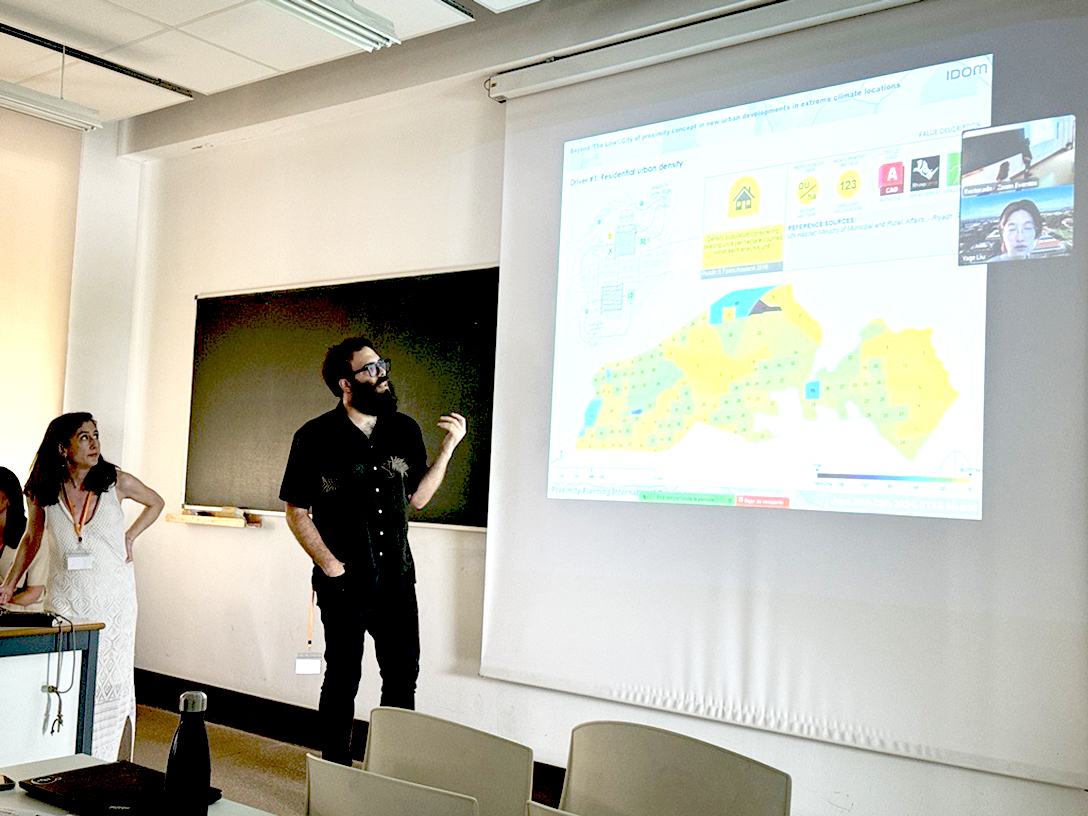How to promote the 15-minute city!
We participated in the Proximity Planning International Congress
Two issues that have been studied for years with the aim of making cities more friendly to their inhabitants are the human scale of cities and the possibility of accessing all services within a walking radius.
The 3rd UPM Forum ‘15-minute city & health’ and the ‘Proximity planning International congress’ took place in Madrid from 26th to 28th June. Organised by the Polytechnic University of Madrid in collaboration with the Berkley University of California, the Technische Universität München and the University of Azuay (Ecuador), they analysed from different disciplines how to promote the proximity city, dealing with topics such as housing, urban design, infrastructures, planning tools, resource allocation or social interaction.
Among the speakers were researchers of the stature of Carlos Moreno (Paris 1 Panthéon-Sorbonne University); Daniel Rodriguez (University of California, Berkeley); Inés Sánchez de Madariaga (UNESCO Chair on Gender/UN-Habitat/UPM), Adriana Hurtado (Universidad de los Andes, Colombia) and Cecilia Silva (Universidade de Porto).
The IDOM Large Scale team gave two presentations. Tono Fernández Usón presented: International cases: Incremental density. Transferability back and forth for more sustainable urban environments, participating in a panel discussion with experts from the City Council of Madrid and the University of Alacant, moderated by José Carpio of the UPM.
Victoria Fernández Áñez and Paco Alfaro Anguita explained the main points of the paper selected by the congress: Beyond ‘The Line’. City of proximity concept in new urban developments in extreme climate locations. This presentation covered the evaluation methodology of the City of proximity, specifically evaluating evaluates density, diversity and proximity indicators and integrates climate indicators. Other specialist areas from IDOM, such as Building Physics or Smart Cities also participated in the development of this methodology tool.
Finally, on behalf of IDOM, our colleague Javier Álvarez de Tomás presented the Young Researcher award to the best young researcher (under 35 years old), selected by a committee made up of representatives of the various participating universities and IDOM.
Do you want to know more? Access the conference proceedings.







